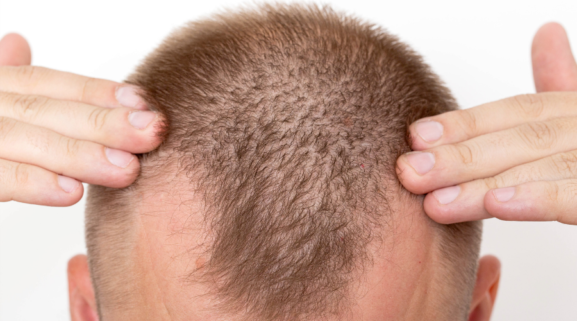Hair Transplantation in Diabetes Patients
Hair Transplantation in Diabetes Patients
Diabetes is a disease that affects patients’ lives in many ways. While hair loss in diabetic patients may be caused by diabetes, it may sometimes be due to reasons independent of the disease. It is possible to have hair transplantation in patients with type 2 diabetes, but the patient’s blood sugar level must be under control. Before the hair transplant operation, the patient should be made sure that the blood sugar is under control by performing a blood test. Hair transplantation is not recommended for patients with type 1 diabetes who use daily insulin, as blood sugar may fluctuate during the operation.
Why hair loss occurs in diabetes patients?
Diabetes is a disease caused by the body’s inability to produce/use enough insulin, resulting in elevated blood sugar levels. There are two types of diabetes, Type 1 and Type 2. Type 1 diabetes results from the body’s immune system attacking insulin-producing cells and is a less common disease than Type 2 diabetes. Type 2 diabetes, on the other hand, is usually seen in advanced ages and is caused by the body’s inability to produce enough insulin or the body’s inability to respond to the insulin produced. Insulin is important for keeping the blood sugar (glucose) level in the body under control. For this reason, if the insulin level is not controlled in both diabetes diseases, dangerous increases in blood glucose levels can be seen.
Uncontrolled ups and downs in blood sugar in diabetics can cause hair loss. Hormones that regulate hair growth and the growth of hair follicles are managed by the endocrine system along with all the hormones in the body. Uncontrolled blood sugar level can disrupt the endocrine system. For this reason, the functioning of hormones such as testosterone, dihyditestosterone, androgen, which affect hair growth, may be disrupted. As a result, deterioration in the health of hair follicles, hair loss, reduction in hair production and thinning of hair can be seen. Controlling blood sugar reduces this negative effect on hormones and hair growth, nutrition and new hair formation are seen.
Another reason why diabetes causes hair loss is that diabetes causes blood circulation problems. If there is a high amount of sugar in the blood, it reacts with hemoglobin (oxygen-carrying blood cells), causing hemoglobin to glycosyrate. Glycosed hemoglobin has a different shape from normal hemoglobin and can become trapped in capillaries. For this reason, oxygen may not be sufficiently transported to every part of the body and may cause the cells to die without oxygen. If this happens in the hair follicles, the hair follicles that are deprived of oxygen die and hair loss occurs.
How Effective is Hair Transplantation Method in Diabetes Patients?
Hair transplantation methods can be applied successfully in diabetic patients if their diseases are under control and are as effective as other patients. The most important effect of diabetes on hair transplantation is prolonging the wound healing period. Micro channels opened on the scalp in hair transplantation turn into tiny wounds and crusts. Since the healing process of these wounds will be longer in diabetic patients, they require drug support and care.
What should diabetic patients pay attention to when having hair transplantation?
There are some conditions that diabetes patients should pay attention to before having a hair transplant:
- Before hair transplantation, the required analyzes should be done completely. Make sure your blood sugar is under control.
- If there is a nutrition program recommended by the doctor to control blood sugar before the operation, it should be applied.
- All drugs used should be reported to the physician before hair transplantation.



